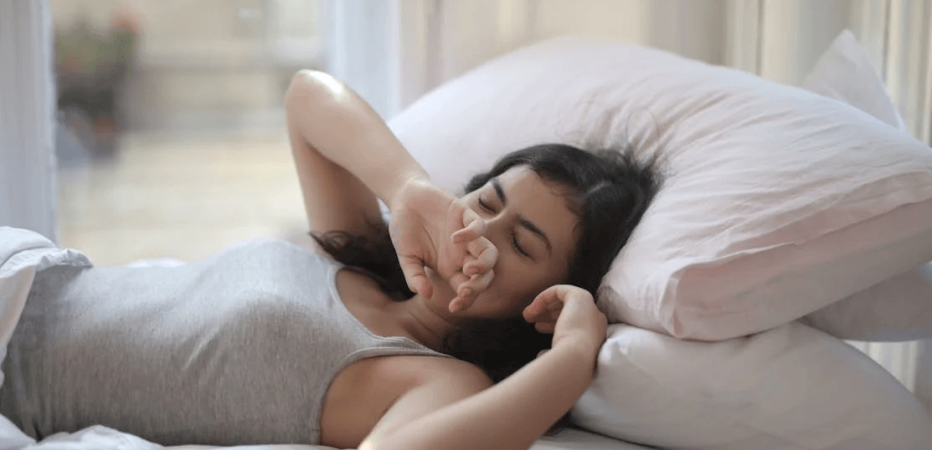Do you belong in the majority of people on this planet who has at least once in your life had a rash on your body from stress? Have you also experienced anxiety and/or panic attacks? Has intense anxiety affected your sleep quality as well as your productivity during the day? Then this article is for you!
We have chosen today to talk about a prominent in the lives of most of us, unpleasant in the majority of cases, but at the same time a necessary emotion...stress.
What is stress?
Is anxiety treated? Yes!
- Exercise. The most "cheap medicine" is and will be exercise. The World Health Organization recommends at least 150 minutes of aerobic exercise per week, which appears to play a vital role in mental health, reducing stress levels and preventing the onset of physical and mental illness. Imagine that we only need 20 minutes of walking a day!
- Balanced diet. The centers of our mental health are the brain and..the gut. The nervous and digestive systems have increased nutrient needs to perform at their best. So, consume a variety of foods from all food groups throughout the week and emphasize a variety of nuts, seeds, fatty fish, fruits and vegetables. The Mediterranean Diet continues to be the No1 dietary pattern that contributes to a reduced likelihood of depression and mental disorders.
- Psychotherapy. Our mental health is inextricably linked to our physical health, as if we don't pay attention to the periods of intense stress we all experience from time to time, our bodies will…take care of us. Symptoms of anxiety and panic attacks such as intense palpitations, severe headaches, tachycardia, and problems with sleep are "signs" the body uses to protect us and tell us that "something is wrong". Psychotherapy with a qualified psychologist is a cornerstone in the management of severe anxiety and the insomnia that results from it.
Dietary supplements to reduce anxiety and insomnia
- Magnesium. A very important mineral, which plays a key role in the smooth functioning of the nervous system. Magnesium deficiency is very common in the population, with rates exceeding 50%, and symptoms include severe muscle aches, problems with sleep, severe period pains, frequent headaches, and intense feelings of anxiety. The "mineral of calmness" can make a difference in stress levels, especially when we are deficient. Supplementing with magnesium citrate or biglycinate for 2-3 months is one of the first supplements we can try to reduce anxiety and improve our sleep quality.
- Rhodiola Rosea. A favorite herb of the Russian and Chinese people, Rhodiola has been used since ancient times and is an adaptogen herb, which according to science helps manage intense stress while maintaining maximum productivity. According to a recent meta-analysis, supplementation with Rhodiola contributes to anxiety reduction, less severe depressive symptoms, while helping the regulation of mood swings.
- Ashwagandha. Another adaptogen herb, from the Indian country, which has attracted much scientific interest in the last decade. Ashwagandha is one of the most famous herbs used in mental health issues, having a wealth of research data on its "back" for reducing stress and improving sleep quality.
- Saffron. The famous "saffron" for foreigners and "Krokos Kozanis" for Greeks is another herb that is being studied, especially in people with depression and has shown excellent data in reducing depressive symptoms and mood swings.
- L-theianine. Theianine is an amino acid, naturally found in coffee beans and green tea, and is the key ingredient that helps reduce the occurrence of the severe side effects that increased caffeine consumption can cause. L-theianine supplementation appears promising in situations of intense momentary anxiety and overstimulation, such as stress and panic attacks, as it contributes to the production of GABA (gamma-aminobutyric acid), a critical neurotransmitter that helps to relax and reduce feelings of anxiety.
- 5-HTP (5-hydroxytryptophan). Tryptophan is an amino acid found in many foods, including dairy, bananas, nuts and chocolate. Tryptophan is a precursor molecule of serotonin (the hormone of joy), which is partially converted to melatonin (the sleep hormone) after the midday hours. Supplementation with 5-HTP appears to have direct effects on mood indicators as well as improving symptoms of severe insomnia, while reduced serotonin levels in the body have been linked to mental disorders as well as problems with sleep. Hmmm..maybe that's why happy people sleep well?










